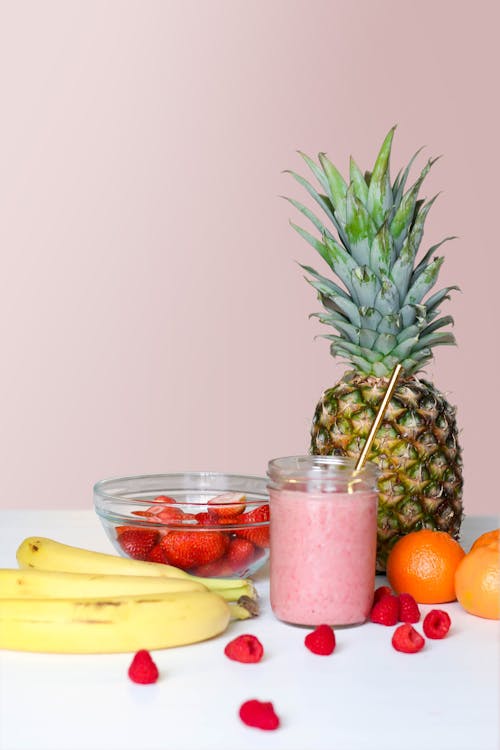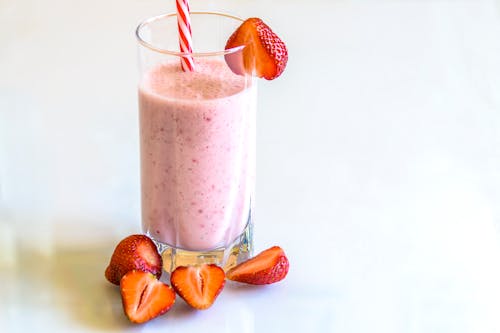
Smoothies are a great way to start your day with a boost of vitamins, minerals, antioxidants, and fiber. They are easy to make, delicious, and nutritious. But what if you don’t have time to make them in the morning? Can you make them the night before and store them in the fridge? And if so, do they lose any nutrients overnight? In this article, I’ll answer these questions and more. I’ll explain how smoothies are affected by time, temperature, light, and oxygen. I’ll also give you some tips on how to preserve the nutrients and freshness of your smoothies.
Smoothies do lose some nutrients overnight, but not as much as you might think. The main factors that affect the nutrient loss are time, temperature, light, and oxygen. To minimize the nutrient loss, you can store your smoothies in airtight containers in the fridge or freezer and consume them within 24 hours.

Smoothies are made of fresh fruits, vegetables, and other ingredients that contain various nutrients. These nutrients are essential for your health and well-being. However, they are also sensitive to degradation by time, temperature, light, and oxygen. Here’s how each factor affects your smoothies:
As you can see, smoothies do lose some nutrients overnight, but not as much as you might think. The nutrient loss is not significant enough to affect your health or well-being. However, if you want to preserve the nutrients and freshness of your smoothies as much as possible, you can follow some simple tips:

Here are some common questions that people have about smoothies and nutrients:
Q: Can I add supplements or protein powder to my smoothies?
A: Yes, you can add supplements or protein powder to your smoothies to boost their nutritional value. However, you should be careful not to add too much or mix incompatible ingredients. Some supplements or protein powders may interact with certain fruits or vegetables and affect their absorption or digestion. You should also check the labels for any additives or preservatives that may affect the quality or safety of your smoothies.
Q: Can I use frozen fruits or vegetables in my smoothies?
A: Yes, you can use frozen fruits or vegetables in your smoothies instead of fresh ones. Frozen fruits or vegetables are usually picked at their peak ripeness and flash-frozen to preserve their nutrients and flavor. They are also convenient and economical as they last longer and reduce waste. However, you should avoid using fruits or vegetables that have been thawed and refrozen as this may affect their texture and taste.
You might be wondering why you should trust me when it comes to smoothies and nutrients. Well, let me tell you a bit about myself. I’m Dale, the founder of Presstocook.com and a food safety expert with over 10 years of experience in the restaurant industry. I have managed busy Asian restaurants in central London where I ensured the highest standards of food safety and hygiene. I have been trained on the highest food safety standards and have a long track record of delivering the highest food safety in establishments I have been running, working with local authorities and external auditors, passing them all. I am certified in HACCP (Hazard Analysis and Critical Control Points – Level 2), Food Safety (Level 3), Health and Safety and Restaurant Management. All CPD certified and Endorsed by the institute of hospitality. I retrain every year to keep up to date with the latest updates in food safety standards and every changing legislation.
At home, I love to cook and play with gadgets, especially kitchen appliances. I have been making smoothies for years and have tried many different recipes, ingredients, and techniques. I know what makes a good smoothie and what to avoid. I also know how to preserve the nutrients and freshness of my smoothies. I have created this article to share my knowledge and experience with you and help you make better smoothies.
Smoothies are a great way to start your day with a boost of vitamins, minerals, antioxidants, and fiber. They are easy to make, delicious, and nutritious. But they do lose some nutrients overnight, due to time, temperature, light, and oxygen. To minimize the nutrient loss, you can store your smoothies in airtight containers in the fridge or freezer and consume them within 24 hours.
I hope this article has helped you learn more about smoothies and nutrients. If you have any questions or comments, feel free to leave them below. I’d love to hear from you.
And remember nothing beats a posho wosho smoothie made with fresh ingredients!
